Made in Quebec: Flowers grown here, not flown here
Flower farmers in Quebec are using a new hashtag on Twitter and Instagram: #grownnotflown
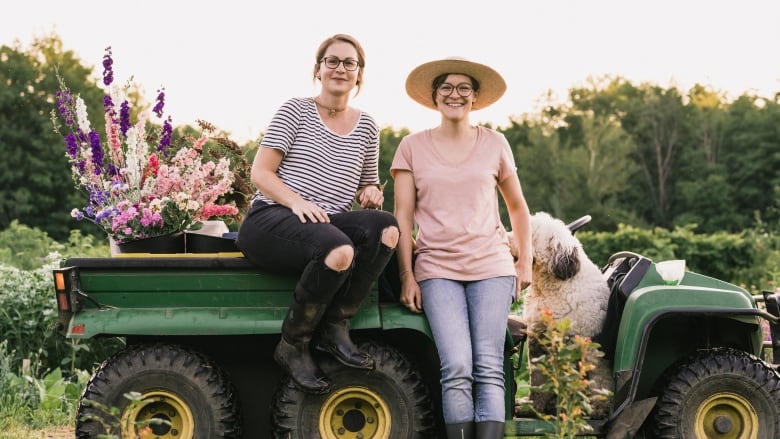
For decades, most cut flowers in Quebec have been flown in imported from Colombia or Ecuador or farther afield. But change is coming.
Already, more and more Quebecers are taking an interest in where their food comes from and where their money is going. They want good food, ideally from a local farmer. And they want that food to be ethically and sustainably grown.
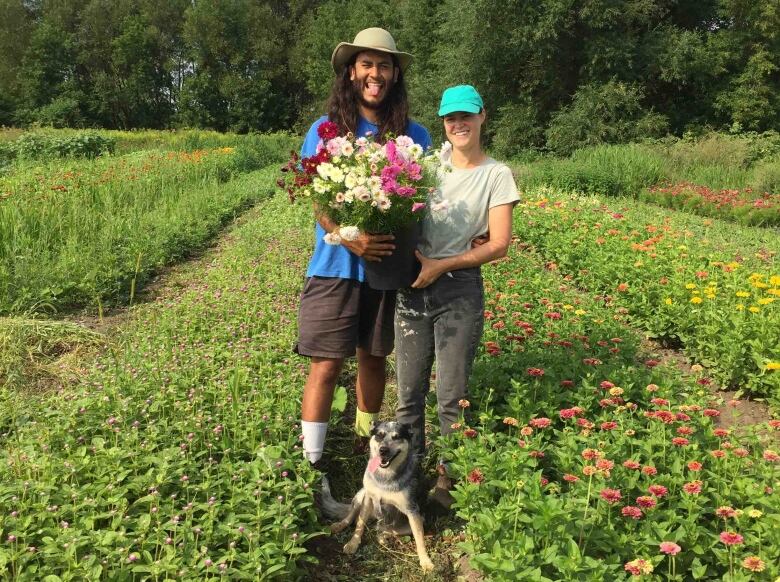
In the past, White said, any flowers grown for the retail market in Quebec were produced in greenhouses, and growers would try to replicate the kinds of flowers imported from overseas. But today's movement is different.
The plants are grown in the field, not in greenhouses. Local varieties, such as cosmos, foxglove, sweet peas, celosia, scabiosa, gomphrena and cabbage flowers are replacing hothouse roses and lilies.
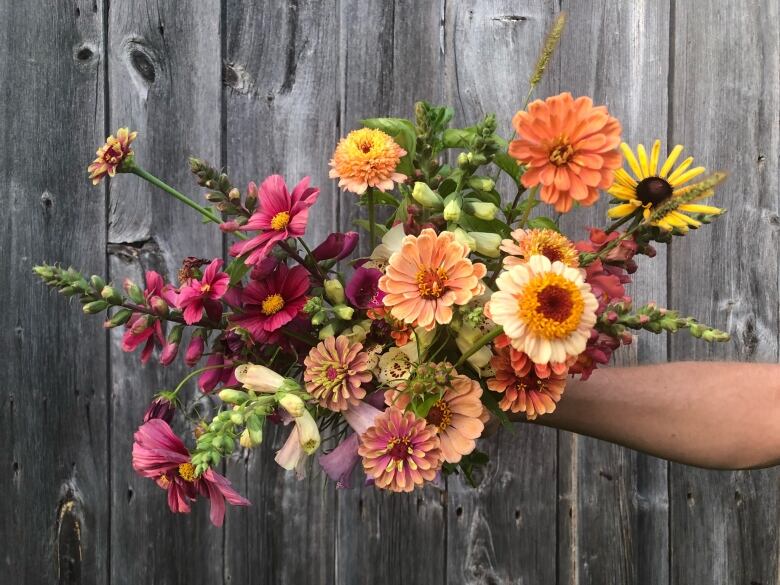
Less wear on the planet
White is proud that their flowers have not been transported from afar. They are sold locally, through florists or at outdoor markets. No shipping by plane means less pollution, lower handling costs, no preservatives and less wear on the planet.
Homefield Farm doesn'tuse chemical fertilizers, pesticides or preservatives, which White says are harmful to the environment and not actually necessary.
He says by using bio-intensive methods, they can produce a lot of flowers on minimum land, while maintaining healthy soil.
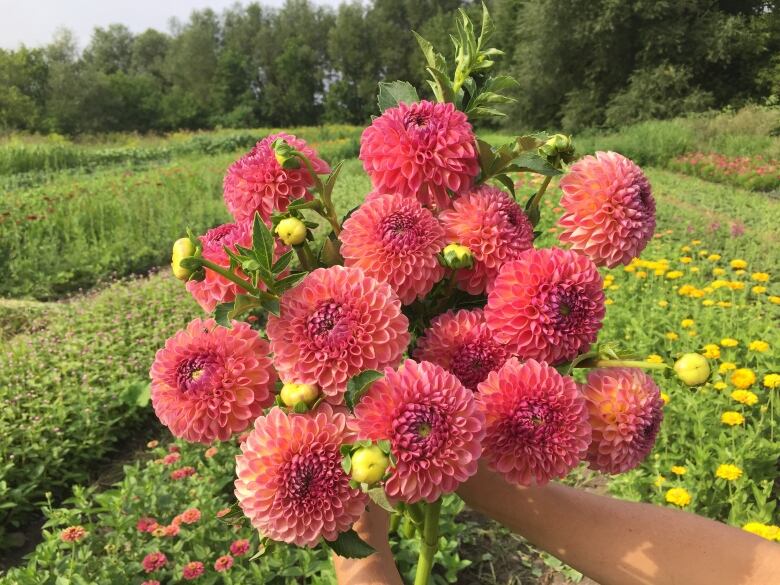
Long-living, local, organic proves popular
"We honestly saw a growing demand for local flowers," Levitsky said. "We were inspired by other flower farms in the United States. We saw a movement growing."
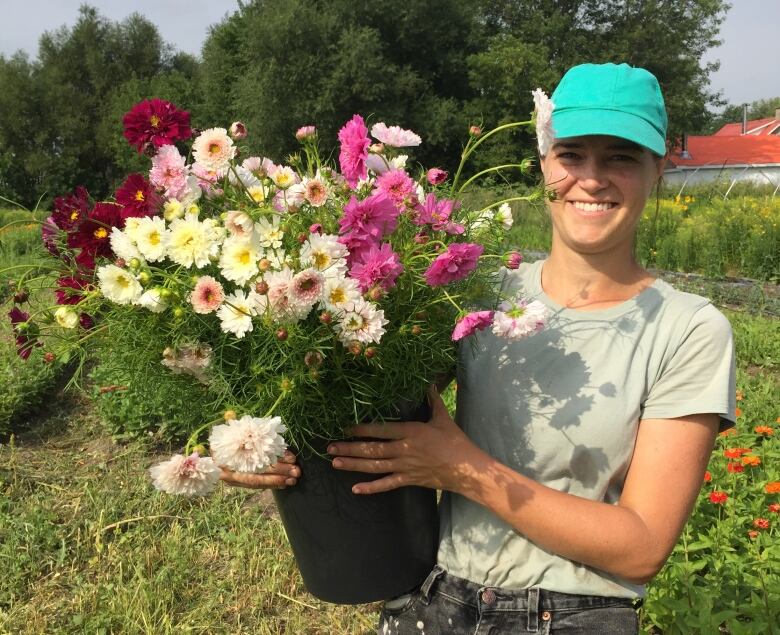
Early on in their venture, they loaded up their van and shopped their flowers around to local florists.
"People were shocked," Levitsky said. "They told us, 'We don't get enough local flowers. We want to buy from you.'"
"We have florists tell us that when they put a sign that says 'local flowers' right next to a bouquet, they sell right away," White concurred.
"It's like the same movement that has happened with food. Organic. No pesticides on food. Or flowers. We want local organic flowers."
Levitsky says there is another benefit as well: "Our flowers last longer. They are cut that morning. With our stuff, they're going to last for a week, even two weeks."
Community-supported agriculture next

She and her partner, Evelyne Guindon, set up their organic flower farm, Origine Ferme Florale, in an old apple orchard.
Now in their second year of commercial production, they mainly sell to florists and do flower arrangements for weddings and special events. Selling directly to consumers on a regular basis proved more challenging.
"It's a more European way to consume flowers," Rivard-Hiller said.
Quebecers are used to buying flowers just for special occasions, she said.
This year, they decided to follow the lead of another local flower producer and start selling bi-weekly bouquets bouquets you pick up the same way you would your local community-supported agriculture (CSA) basket.
Origine Ferme Florale had 50 places for CSA bouquets this year and were quickly sold out, with a waiting list for next year.
People can sign up for five or 10 bouquets over the course of a summer, picking them up at one of four drop-off locations around Montreal.
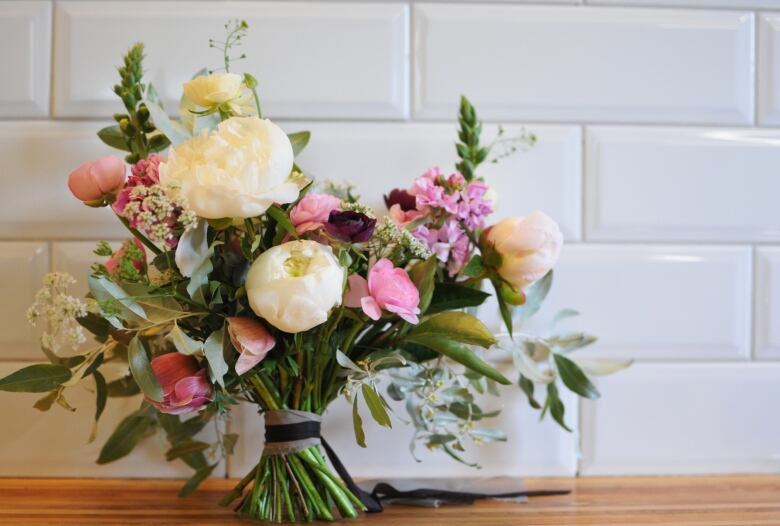
Short growing season
Because the growing season for flowers here is so short, the workload is intense and the pace relentless.
"We had 12-hour days, seven-day weeks, for five months," said White.
"I guess we don't mind the hard work, especially knowing we'll have a bit of a break in the winter."
Only a few farms in Quebec are focusing on growing sustainable local flowers. Some of the farmers plan to meet later this month, to find ways to share information and maybe even to form an organization.
Homefield Farm sells its flowers, during the growing season, at the March Sainte-Anne in Sainte-Anne-de-Bellevue and the March Fermier at the Laurier Metro station in Montreal.
Origine Ferme Florale distributes its baskets to locations in Mile End and Ahuntsic in Montreal and in Bois-des-Filion and Saint-Joseph-du-Lac.
Another flower farm which provides bi-weekly locally grown bouquets is Floramama, in Frelighsburg.












_(720p).jpg)


 OFFICIAL HD MUSIC VIDEO.jpg)
.jpg)



























































































